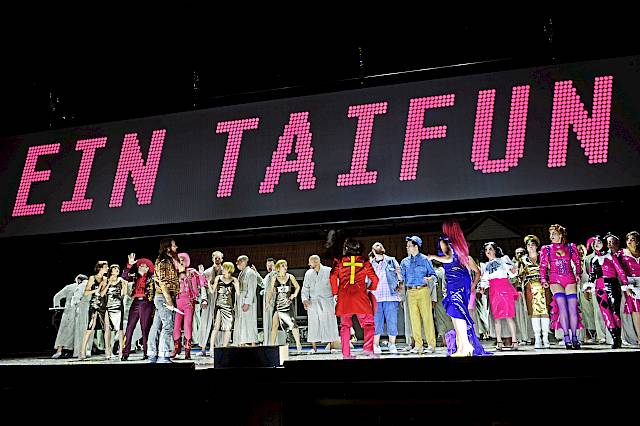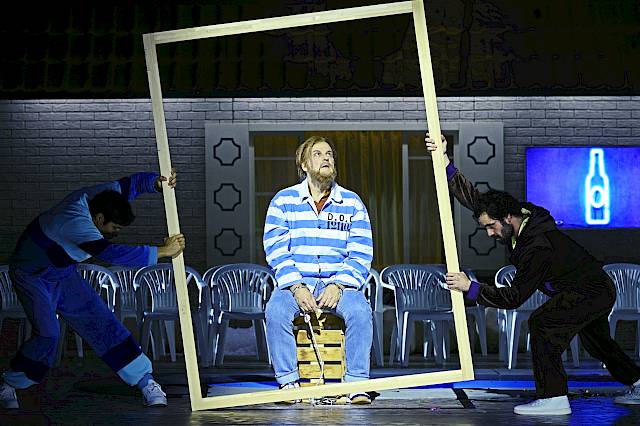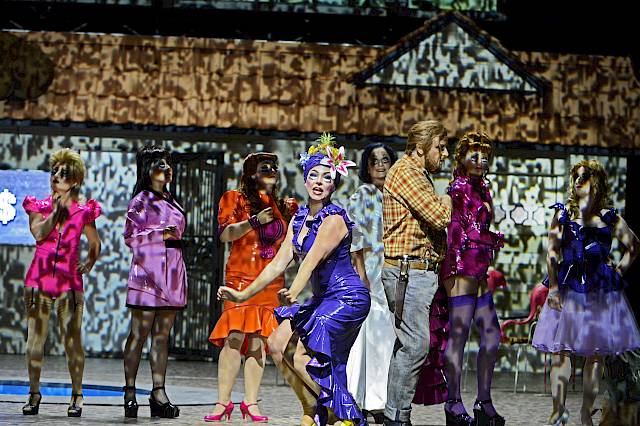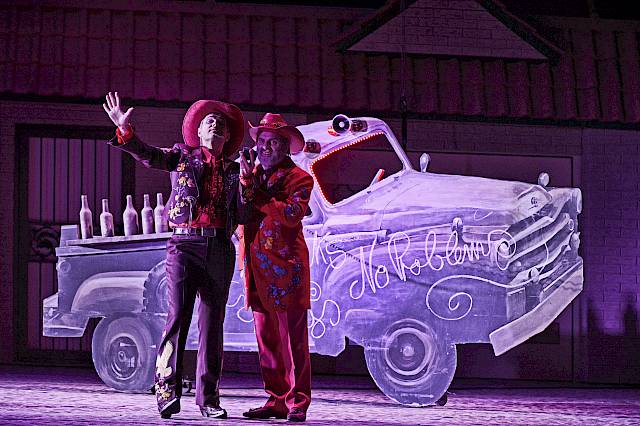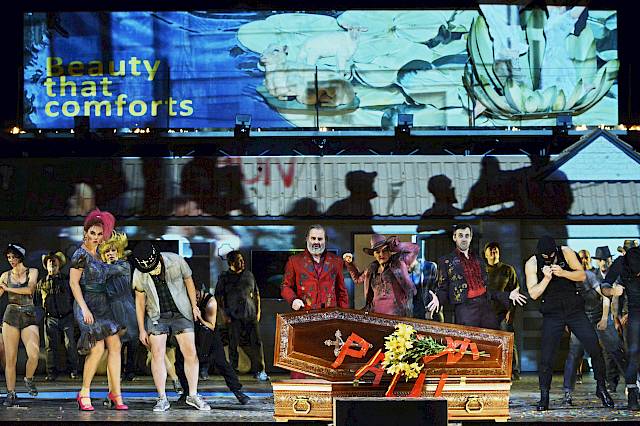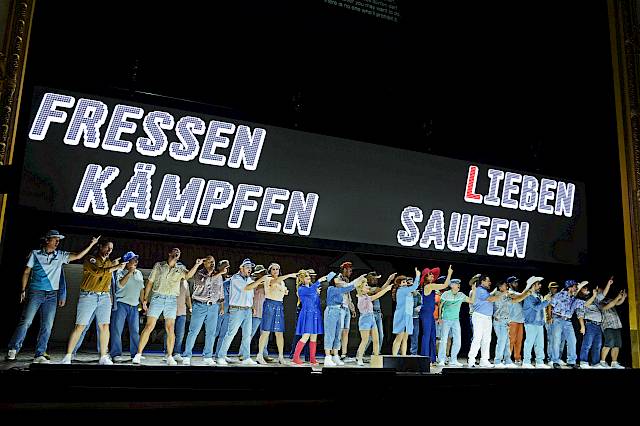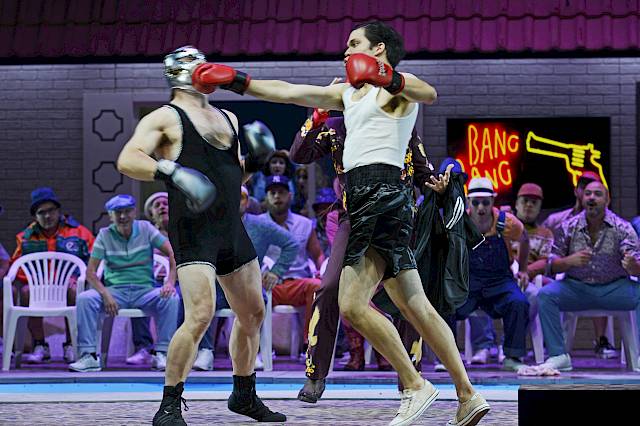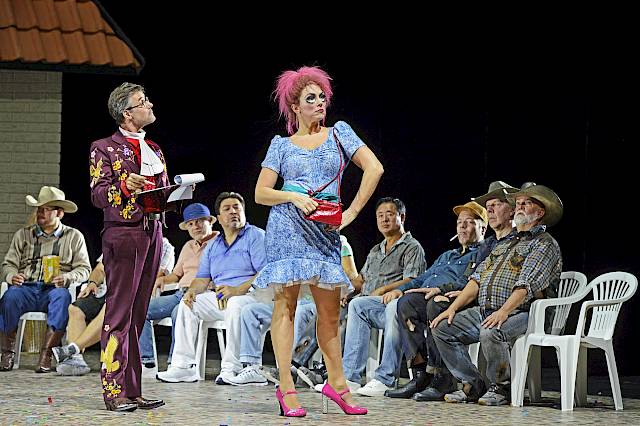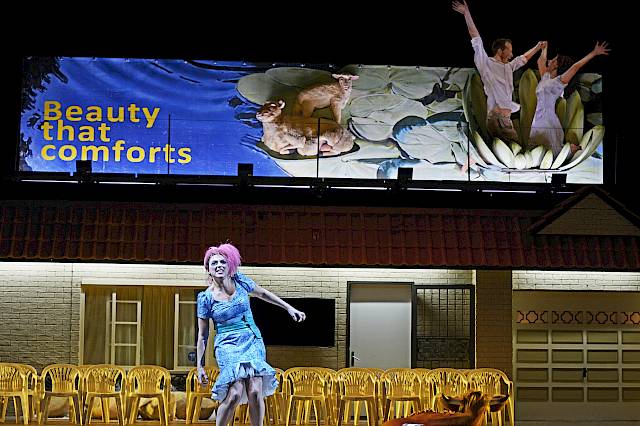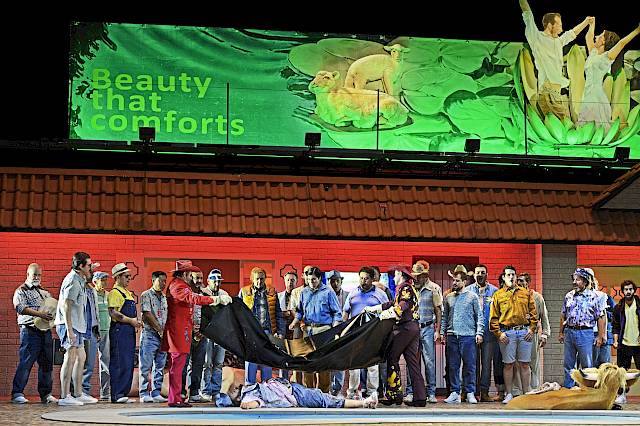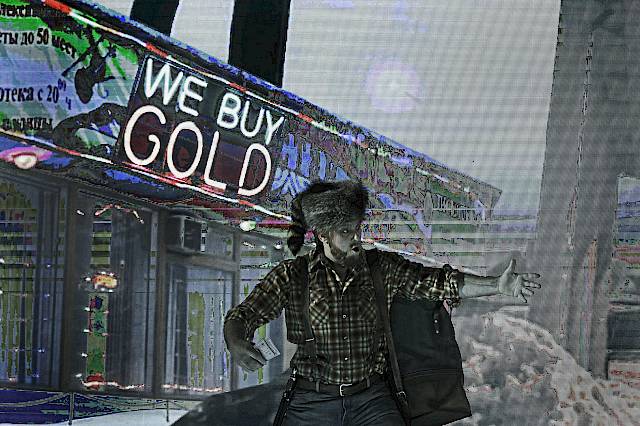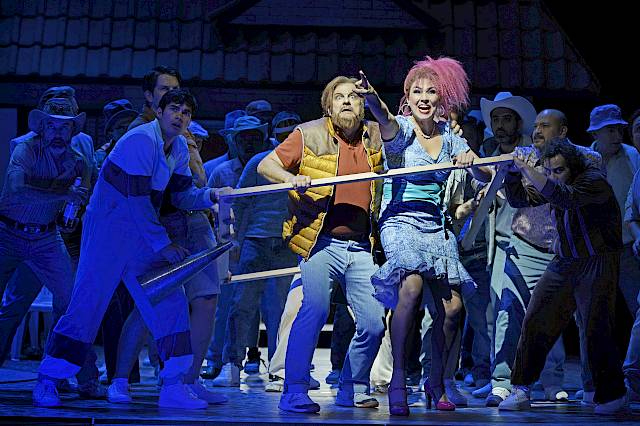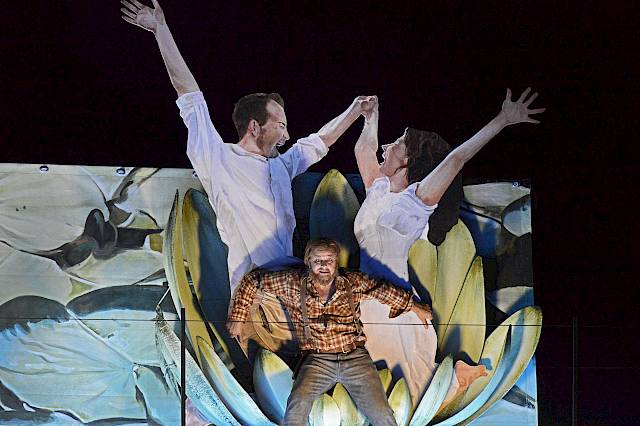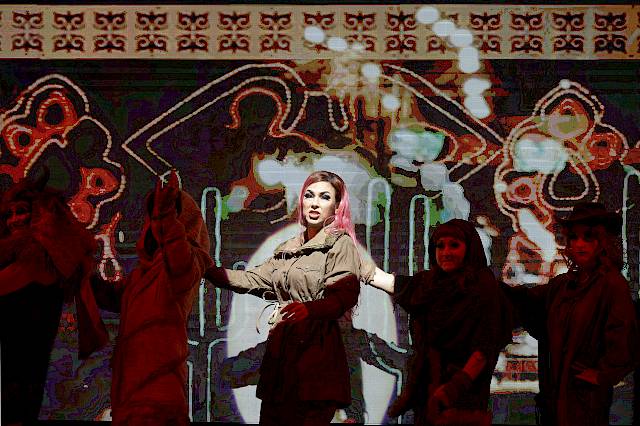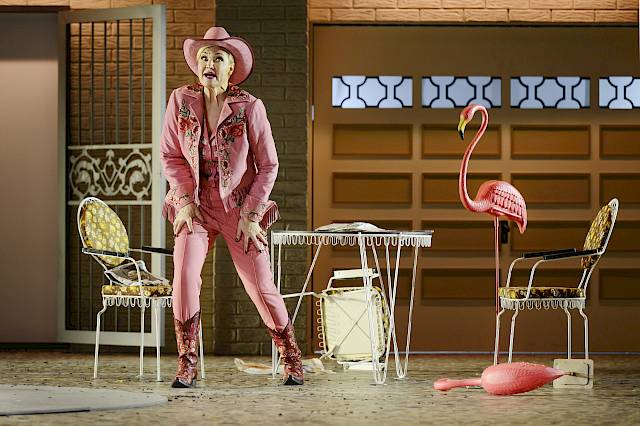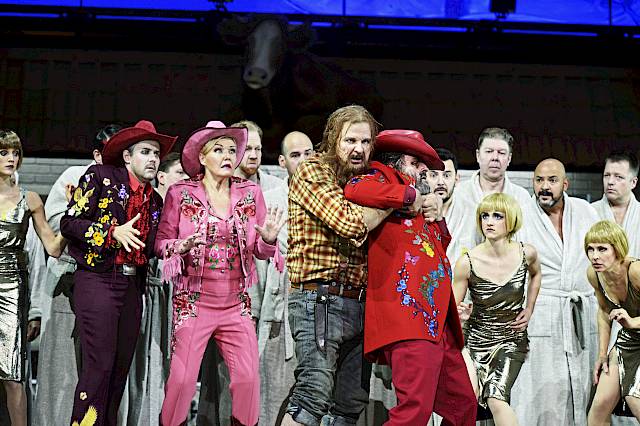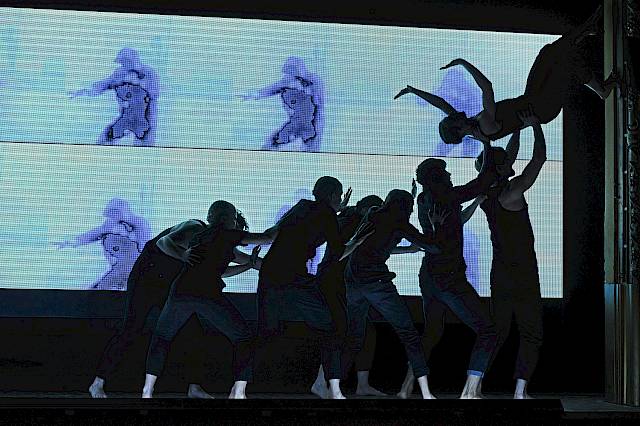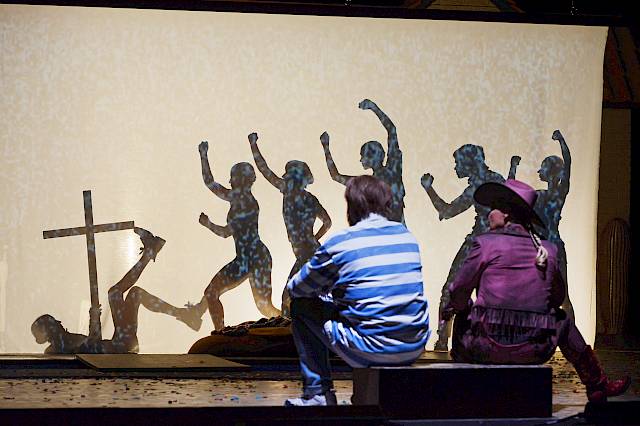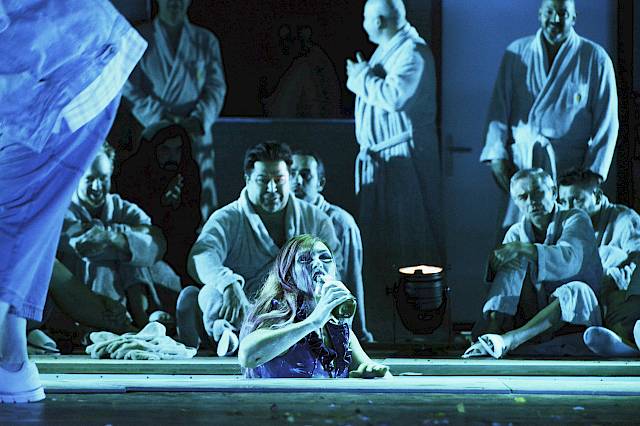Abstract
Bertolt Brecht and Kurt Weill’s opera Aufstieg und Fall der Stadt Mahagonny, which premiered in 1930, is great fun. Weill’s highly varied disparate score mixes together music hall songs, jazz numbers, folk music, chorales, and arias. The scenes offer colorful, up-beat theater with adventurous location changes. The themes at the center of the show stretch from mankind’s pursuit of happiness to the impending end of the world. But the raucous fun is destined to get caught in your throat, because Mahagonny is also cynical, sarcastic, and caustic in its critiques. It shows a society sinking into anarchy as it self-destructs, reveals capitalism to be a perverted promise of freedom, and presents us with human depravity, snarling back at us from a distorted mirror. Sebastian Baumgarten’s production, which enjoyed wild success when it premiered three years ago, returns: this classic show from the early modern music theater age offers a series of images once brightly colored and bitingly socio-critical. Baumgarten shows the excesses of a society crazy with pleasure and fun with the instruments of epic theater, which he reinterprets for the present with great visual impact. The highly demanding tenor role of the doomed hero Paul Ackermann is sung by Christopher Ventris. Romanian soprano Valentina Farcas will appear as Jenny, and the character role of Widow Begbick will be played by Doris Soffel.


